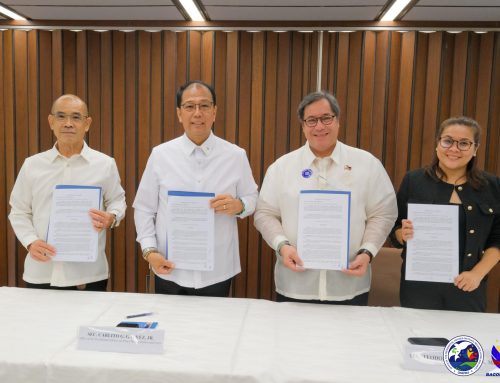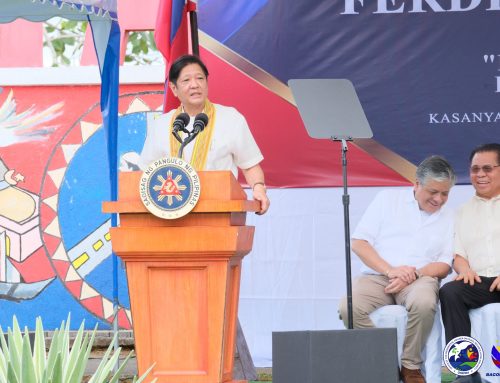President Rodrigo Duterte has given instructions to Labor Secretary and government chief peace negotiator Silvestre ‘Bebot’ Bello III and panel member Angela Librado-Trinidad to produce a signed bilateral ceasefire agreement before he will order a substantial release of detained communist rebels.
“Produce to me a signed bilateral ceasefire agreement and I will release them within 48 hours. You can take my word for it,” Bello quoted the president as saying.
The president later told Malacanang Palace employees that the government has already conceded far enough to the National Democratic Front.
But he also promised to release a number of elderly and sick detained rebels before Christmas Day.
“The president told us that once he receives even just a facsimile copy of the signed agreement, he will immediately order the release of communist rebels,” Bello likewise said.
Bello and Librado sought instructions from Malacanang after the president met with top rebel leaders Benito and William Tiamzon in Davao City on Friday evening.
In that meeting, the president said he would keep his campaign promise to release detained communist rebels.
The president, however, gave his latest instructions during the break of the cabinet meeting at the Palace Monday evening.
The government panel holding peace talks with the NDF has submitted a list of 200 prisoners who are eligible for release under the new guidelines of the Presidential Committee on Bail, Recognizance and Parole (PCBREP).
Twenty-five (25) of them are elderly, sick and women.
The NDF claimed 434 rebels are still being held in different detentions all over the country.
Four rebels convicted for murder and kidnapping were already given presidential pardon as announced by the Secretary Bello Friday last week.
They were identified as Martin Villanueva, Bonifacio Suyon, Dindo Absalon and Rico Bodina. They have served sentence ranging from 18 to 26 years. All are farmers.
Ceasefire
Although both the government and the NDF have declared their own unilateral ceasefires, the two camps have been complaining of reports of violations from the field.
But Bello said until both panels agree to a set of guidelines, “there are technically no violations.”
The labor secretary said it is to the best interest of combatants from both sides and especially the civilians caught in the middle of the armed conflict that a “formal ceasefire is in place so that we can monitor any claims of violations.”
“Remember, one life saved is one more happy family,” the government chief negotiator said.
During the formal opening round of the peace negotiations, both the GRP and NDF panels agreed to submit drafts on bilateral ceasefire.
But the NDF later said the ceasefire is tied to the release of ‘political prisoners’.
President Duterte earlier ordered the release of 21 rebel leaders who now are acting as consultants of the NDF panel holding peace talks with the government.
The president made a campaign promise to reopen peace negotiations with the NDF, which is representing the Communist Party of the Philippines (CPP) and its armed wing the New People’s Army (NPA).
The Philippine government and the NDF will resume formal peace talks in January, possibly in Rome, Italy.
“The weather is a bit better in Rome than in Oslo, Norway,” Bello cited the reason for the change of talks venue.
The first two rounds of formal peace negotiations with the NDF under the Duterte administration were held in Norway whose government is facilitating the talks to put an end to nearly 50 years of armed rebellion in the Philippines.
The guerrilla war being waged by the CPP-NPA-NDF is now Asia’s longest running active insurgency movement.










